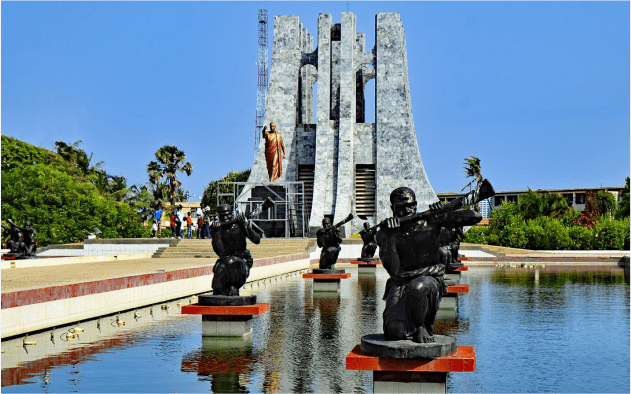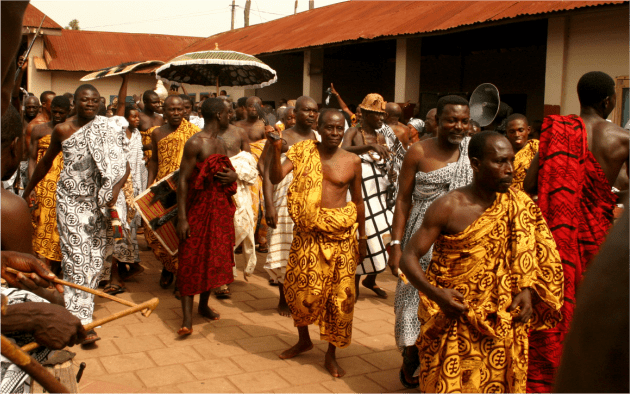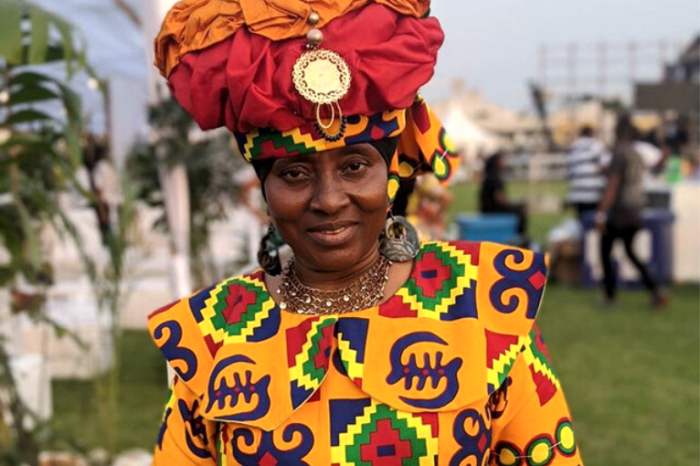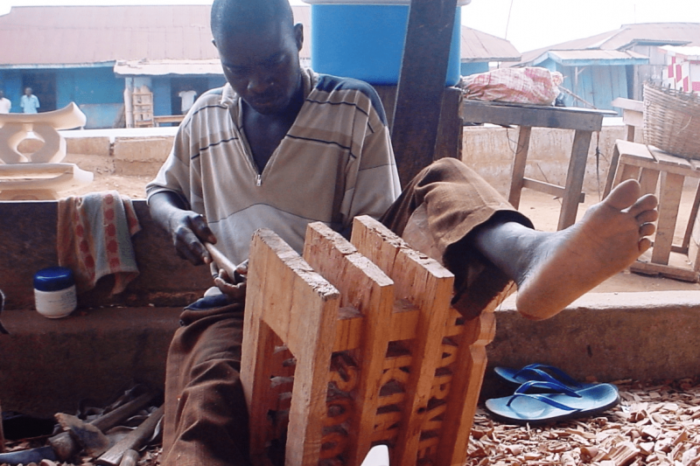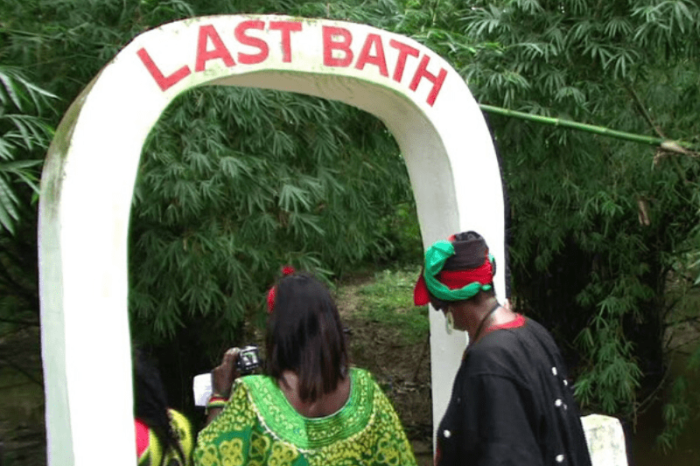Explore Ghana
INTRODUCTION TO GHANA
Situated in West Africa, Ghana was formerly known as the Gold Coast during British colonial rule, achieving its independence in 1957. The name “Ghana” draws inspiration from the medieval Ghana Empire located along the Niger River, and the newly sovereign nation has since emerged as a leader in the African struggle for freedom. Despite its rich tapestry of over 100 ethnic groups, Ghana has successfully navigated the ethnic tensions that have afflicted many other nations on the continent. The capital city, Accra, is the largest urban center in the country, where English is widely spoken alongside numerous indigenous languages. While Ghana has a robust economy, agriculture plays a vital role, and poverty remains a significant challenge. Key sectors driving the economy include gold mining, cocoa production, and tourism. Historically, Ghana has been a renowned source of gold, a legacy recognized by European explorers who dubbed it the Gold Coast during the 15th and 16th centuries. Covering an area of 238,500 square kilometers, Ghana shares borders with Côte d’Ivoire, Togo, and Burkina Faso, and has the Gulf of Guinea along its southern coastline. Its diverse geography encompasses coastal plains, forested plateaus, hilly ranges, and high plains, with Mount Afadjoto in the Akwapim-Togo Ranges being the highest point at 885 meters.RIVERS IN GHANA
The Volta River is Ghana’s main waterway, formed by the confluence of the Black Volta and White Volta rivers in the central part of the country. It flows southeast into the Gulf of Guinea at Ada. The construction of the Akosombo Dam in 1965 resulted in the creation of Lake Volta, which spans an impressive area of 8,482 square kilometers (3,275 square miles), making it one of the largest artificial lakes globally.The Oti and Afram rivers serve as the principal tributaries of the Volta River, collectively draining the extensive Volta Basin. In addition to these, Ghana is home to other significant river systems, including the Densu, Birim, Pra, and Ankobra rivers, all of which also flow into the Gulf of Guinea. Generally, Ghana’s rivers are navigable only by small boats, with the exception of the Volta River. Furthermore, Lake Bosumtwi, situated in the Ashanti uplands, is the country’s only natural lake.
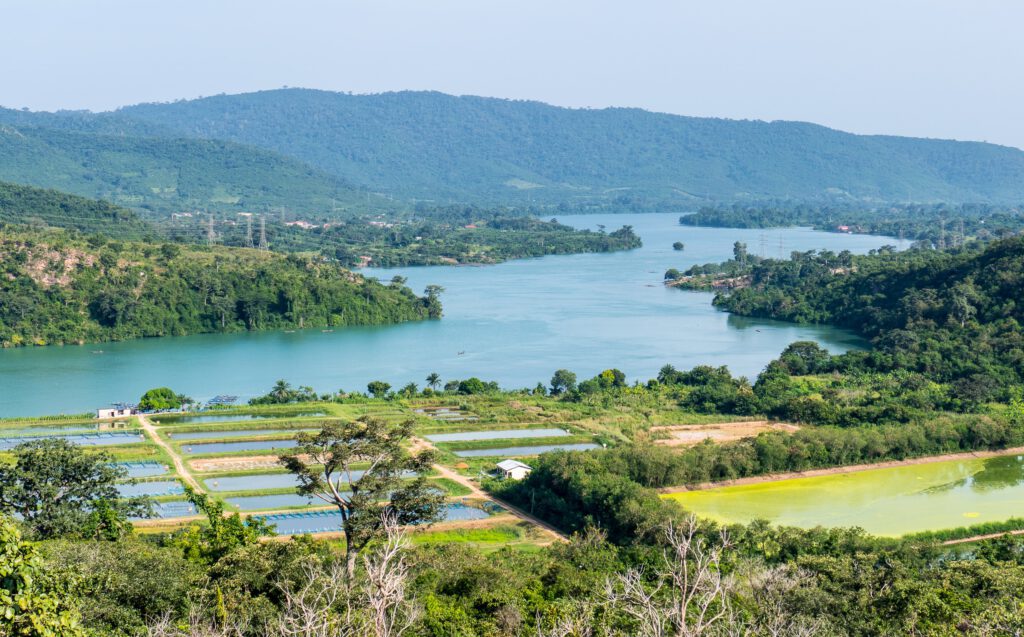
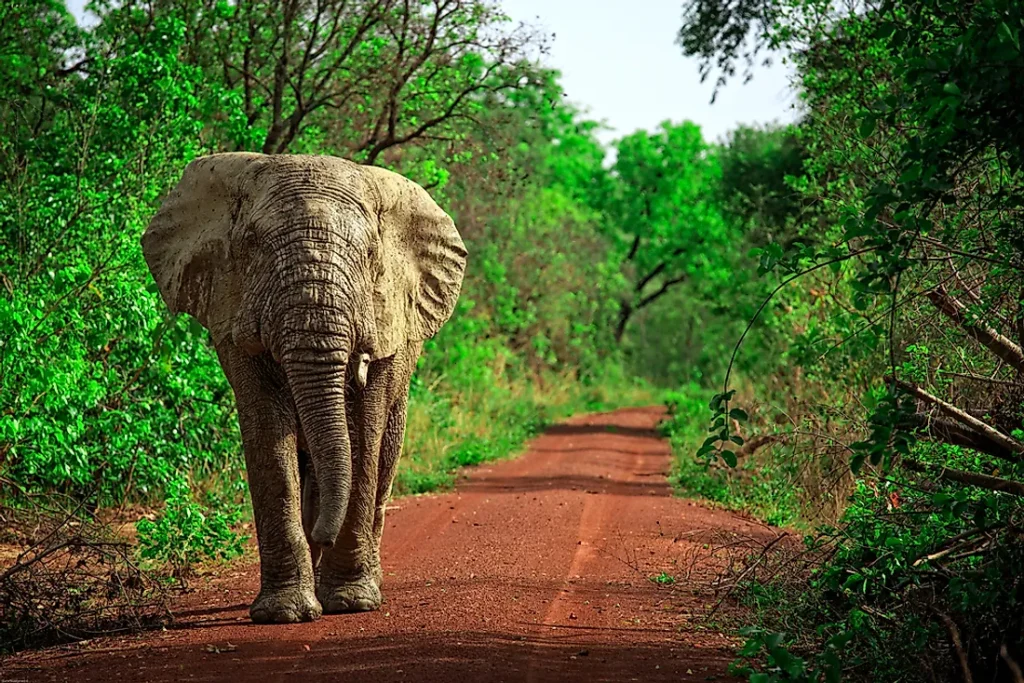
Flora and Fauna of Ghana
Southern Ghana is characterized by evergreen and semideciduous forests, home to towering silk cotton trees, kola trees, and valuable West African hardwoods, including mahogany, odum, and ebony. In contrast, the northern two-thirds of the country is dominated by savanna, a type of tropical grassland interspersed with shrubs and trees. This savanna region features notable flora such as shea trees, acacias, and baobabs. The oil palm can be found throughout the southern regions and the Ashanti uplands, while coastal lagoons are rich in mangrove ecosystems.
Once abundant, large mammals like elephants and lions are now scarce and primarily found within protected nature reserves. Mole National Park in northwest Ghana serves as a crucial sanctuary for these species. The forested areas provide habitats for monkeys, snakes, and antelopes, while some of the country’s major rivers are home to crocodiles. Ghana boasts a rich avian diversity, with over 725 bird species recorded across the nation.
MAHOGANY
Mahogany refers to a medium-sized family of tropical trees and shrubs, encompassing approximately 550 species across around 50 genera. This family is renowned for its high-quality timber (see Soapberry). The true mahoganies belong to specific genera found in the Americas and Africa. Typically, members of this family feature pinnately compound leaves, along with three to five sepals and petals. They also possess five to ten stamens that are fused along their filaments, forming a tubular structure.
Mahogany wood is valued for its density, strength, and workability, as well as its resistance to decay and termites. It is commonly used in furniture making and veneers, and in the past, it was employed in construction before large trees were significantly depleted. Additionally, other genera within this family also provide valuable wood, oils, and insecticides., and edible fruits. The chinaberry tree, native to the Himalayas, is widely
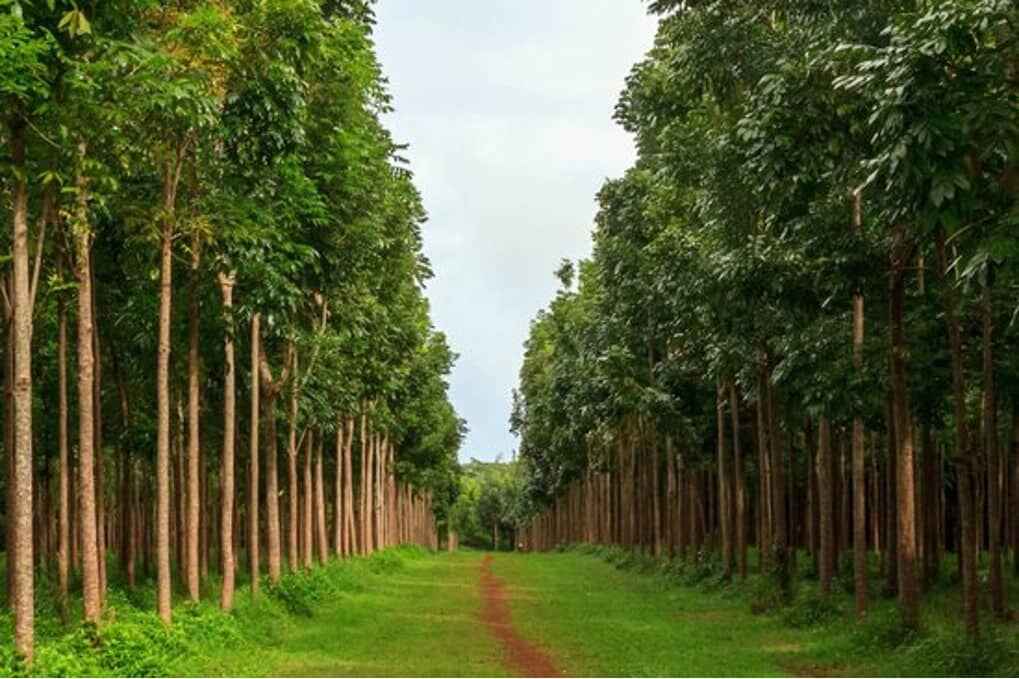
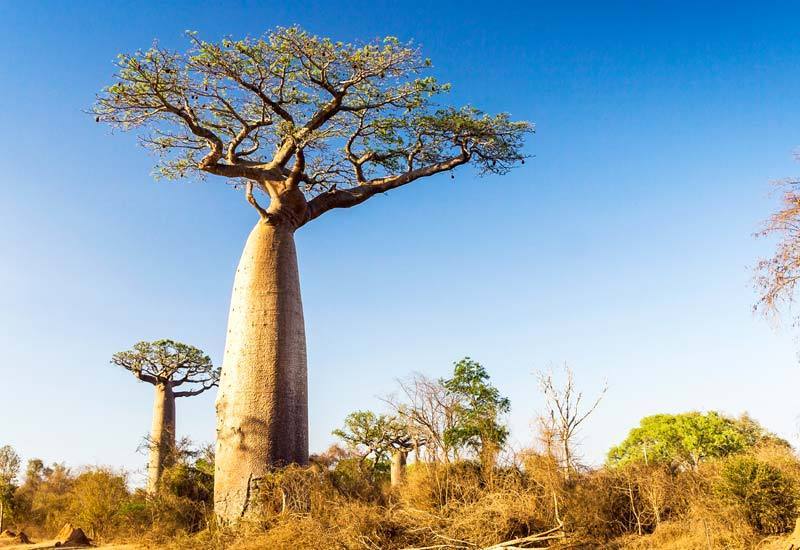
BAOBAB TREE
The baobab tree, often referred to as the “tree of life,” is native to tropical Africa but has garnered attention and cultivation in various tropical regions globally. While it may reach a height comparable to a large maple tree, its extraordinary lateral growth gives it immense size and presence. A baobab’s trunk can reach up to 9 meters (30 feet) in diameter, and its branches can become as thick as the trunks of other large trees, creating a broad, hemispherical canopy that can extend about 45 meters (150 feet) across.
Notably, the baobab produces a fruit known as “monkey bread,” which is roughly the size of a citron. The pulp of this fruit is prized for its refreshing, tangy flavor and is often used in beverages and additional culinary applications. Beyond its fruit, the baobab tree has practical uses; its bark is a source of strong fiber, useful for making cordage.
The baobab tree is not only an important cultural and ecological symbol in its native regions but also a versatile tree that continues to find value in various parts of the world.
CLIMATE
Ghana’s climate is marked by clear wet and dry seasons, with variations across different regions. In the northern part of the country, there is a prolonged rainy season lasting from March to November, followed by a dry season characterized by the harmattan winds blowing from the Sahara, peaking in December and January. Meanwhile, the southern region experiences two rainy seasons: one from April to July and another from September to November, with sporadic rains in August.
In Accra, average daily temperatures range between 23°C and 31°C (73°F to 87°F) in January and from 23°C to 27°C (73°F to 81°F) in July. The northern regions tend to be slightly warmer. Rainfall varies significantly throughout the country, with the north being generally drier, except for the coastal areas surrounding Accra. Mean annual rainfall in Accra ranges from 750 to 1,000 mm (30 to 40 inches), while the Kwahu Plateau receives between 1,470 and 1,830 mm (60 to 70 inches), the southwest coast gets around 1,780 to 2,080 mm (70 to 80 inches), and the northern high plains receive approximately 1,100 to 1,200 mm (40 to 50 inches). Ghana also faces occasional drought conditions.
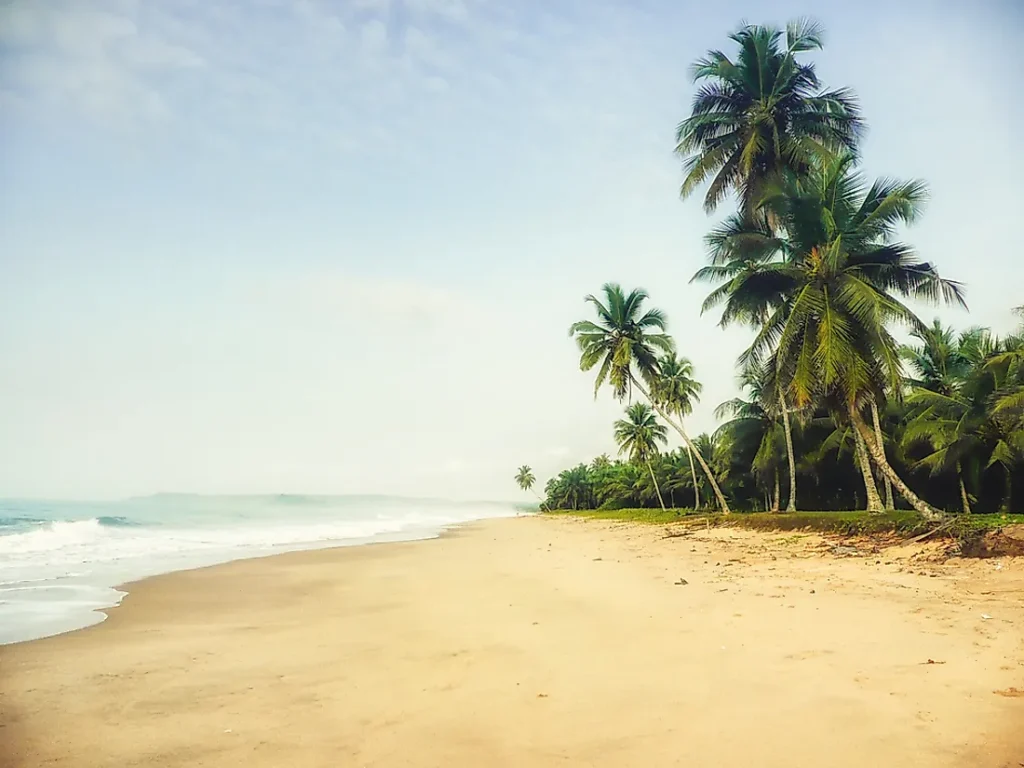
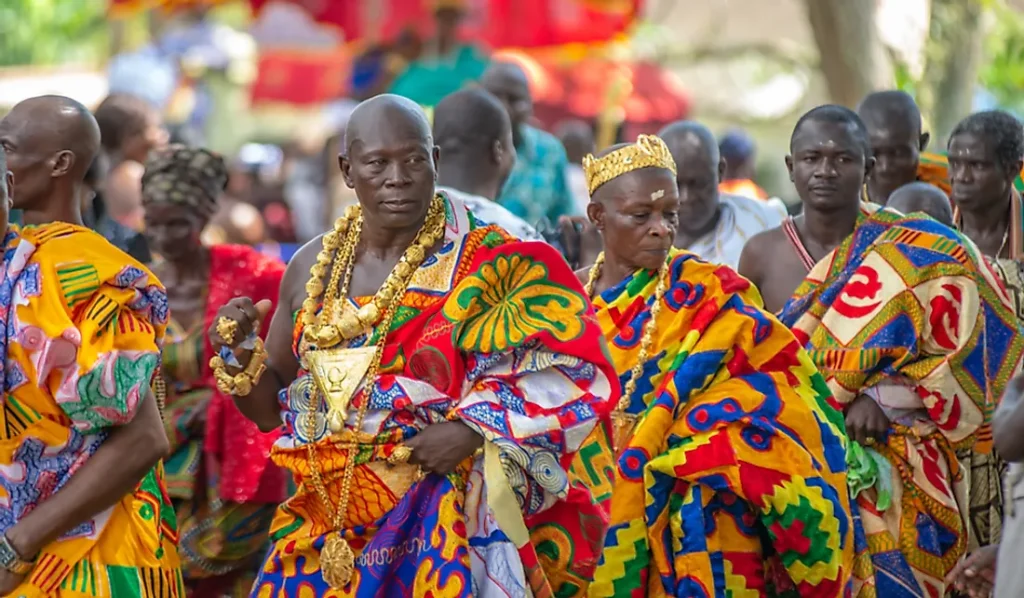
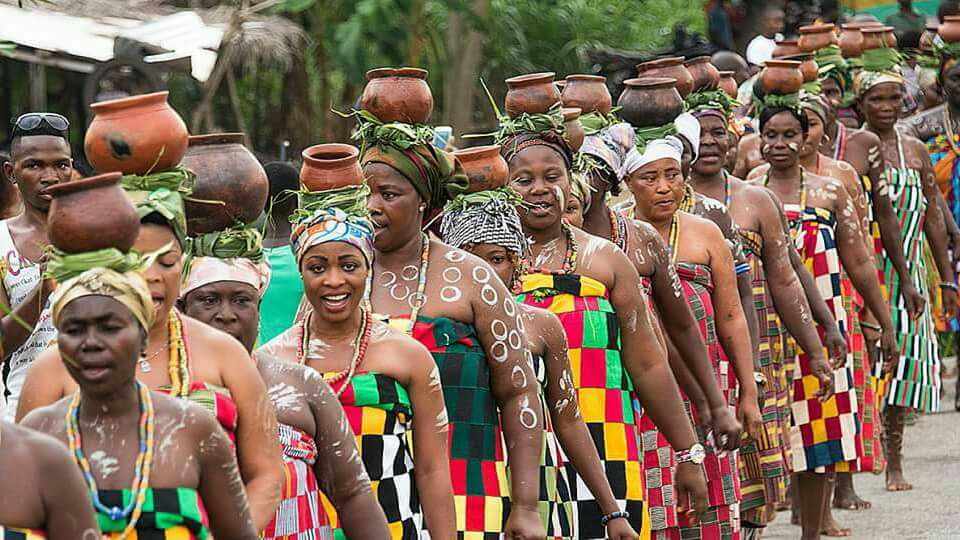
ETHNICITY AND LANGUAGE IN GHANA
Ghana’s population is incredibly diverse, comprising over 100 distinct ethnic groups, each with its own unique identity. Generally, these groups fall into two primary linguistic families: Kwa and Gur.
The Kwa speakers constitute approximately 75 percent of the population and are predominantly found in the region south of the Volta River. A key subgroup within the Kwa family is the Akan speakers, which include the Ashanti, Bono, Fante, Akuapem, Akyem, and Kwahu peoples. The Ashanti and Akuapem communities communicate using similar Akan dialects known as Twi. Other Kwa linguistic groups in Ghana encompass the Nzima, Ga, Gonja, Adangbe, and Ewe.
Conversely, the Gur linguistic family is primarily located in the northern parts of the country. The main language in this family is Dagbane, which is spoken by ethnic groups such as the Dagomba and Mamprusi. Due to the rich linguistic diversity and increased population mobility, many Ghanaians are proficient in at least one of five major languages: Akan, Nzima, Dagbane, Ga, or Ewe, in addition to English, which serves as the country’s official language.
On the other hand, members of the Gur linguistic family primarily reside in the northern regions of the country. The main Gur language is Dagbane, spoken by ethnic groups like the Dagomba and Mamprusi. Due to the linguistic diversity and increasing mobility of the population, most Ghanaians understand at least one of five major languages – Akan, Nzima, Dagbane, Ga, or Ewe – as well as English, the official language of the country.


